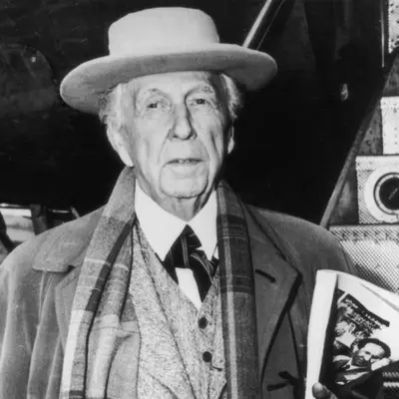What Was Leonard Cohen’s Net Worth?
At the time of his death on November 7, 2016, Leonard Cohen, the celebrated Canadian singer-songwriter, musician, and author, had a net worth estimated at $10 million. This figure represents the culmination of a multifaceted career spanning several decades, encompassing music, literature, and performance. However, it’s important to note that his net worth could have been significantly higher, potentially exceeding $20 million, had it not been for alleged financial mismanagement and theft by his former business manager.
Financial Mismanagement and Legal Battle
For a significant portion of his career, Kelley Lynch served as Leonard Cohen’s business manager. Starting in the early 2000s, Cohen reportedly began to suspect financial irregularities in his accounts. One instance involved Cohen allegedly discovering that he had personally covered a $75,000 credit card bill incurred by Lynch. More concerningly, he found that substantial funds were missing from his various accounts, including retirement and charitable trusts. Allegedly, the financial mismanagement began in the mid-1990s, with Lynch reportedly selling off his music rights without his full consent or proper accounting. This reportedly occurred after Cohen entered a Zen Buddhist retreat, leaving Lynch with considerable control over his financial affairs.
In 2005, Cohen initiated legal action against Kelley Lynch, accusing her of misappropriating his finances through “greed, self-dealing, concealment, knowing misrepresentation and reckless disregard for professional fiduciary duties.” He claimed that his retirement account alone had been reduced from over $5 million to approximately $150,000. In March 2006, Cohen won a civil suit against Lynch, securing a $9 million judgment. However, recovering the full amount proved challenging, and the financial repercussions of the mismanagement significantly impacted his overall net worth.
Early Life and Education
Leonard Cohen was born on September 21, 1934, in Westmount, Quebec, Canada. His family background was deeply rooted in Jewish tradition. His mother, Masha Klinitsky-Klein, who immigrated from Lithuania, was the daughter of a Talmudic writer and rabbi. His father, Nathan Cohen, owned a clothing store and passed away when Leonard was only nine years old. Nathan Cohen was the son of Lyon Cohen, who was a founder of the Canadian Jewish Congress.
Cohen’s early education took place at Roslyn Elementary School, followed by Herzliah High School before transferring to Westmount High School. During his time at Westmount, he immersed himself in music and poetry, actively participating in the school’s theatre program. He then enrolled at McGill University, where he began publishing his poems and developing his literary voice. Cohen’s literary influences included William Butler Yeats, Irving Layton, Walt Whitman, and Henry Miller. Although he briefly pursued law at McGill and spent a year studying at the Columbia University School of General Studies in New York, Cohen ultimately chose to dedicate himself to writing and poetry, taking on various odd jobs to support his passion.
Literary Career
Cohen’s literary career began with the publication of his first book of poetry, “Let Us Compare Mythologies,” in 1956. The book’s publication marked the formal beginning of his professional writing. In 1961, he published his next book of poetry, “The Spice-Box of Earth.” His early literary successes provided him with a foundation and recognition, however, he eventually gravitated towards music as a more viable and impactful means of artistic expression. During the 1960s, he lived on the Greek island of Hydra, a haven for artists and writers, where he continued to write and publish, including “Flowers for Hitler,” “The Favourite Game,” and “Beautiful Losers.” These works, while not directly contributing substantial income, built his reputation as a writer and helped establish his unique artistic voice.
Musical Career
In the late 1960s, Leonard Cohen transitioned more fully into a music career, moving to the United States in 1967. He was a marginal figure in Andy Warhol’s ‘Factory’ scene. His entry into the music world involved collaborations with Judy Collins, who recorded his song “Suzanne,” which gained considerable attention. Cohen also performed at folk festivals, attracting the attention of Columbia Records producer John Hammond, who signed him to a record deal. His debut album, “Songs of Leonard Cohen,” released in 1967, received a lukewarm reception in the U.S. initially but became popular in the U.K. after its release in 1968.
In 1969, Cohen released “Songs from a Room,” which further solidified his reputation as a songwriter. His music gained wider exposure when director Robert Altman featured several of his songs in the 1971 film “McCabe & Mrs. Miller.” Cohen also embarked on his first tour in 1970, performing in the U.S., Europe, and Canada, and continued touring throughout the 1970s, including performances at the Montreux Jazz Festival. He released the album “Death of a Ladies’ Man” in 1977, a departure from his usual sound, and in 1979, he released “Recent Songs,” returning to a more acoustic and jazz-influenced style.
In the early 1980s, Cohen co-wrote the rock musical film “Night Magic” and released the album “Various Positions” in 1984, featuring “Hallelujah.” Although initially unsuccessful, “Hallelujah” gained popularity through covers by John Cale in 1991 and Rufus Wainwright in the 2001 film “Shrek.” Since then, the song has been performed by nearly 200 artists in various languages. Royalties from “Hallelujah” covers and performances have generated substantial income over the years, although the exact figures are not publicly available. Cohen continued to produce music and writing throughout the 1990s, publishing “Stranger Music: Selected Poems and Songs” in 1993 and releasing “More Best of Leonard Cohen” in 1997.
After spending time at the Mt. Baldy Zen Center in Los Angeles and being ordained as a Rinzai Zen Buddhist monk in 1996, Cohen returned to music with “Ten New Songs” in 2001, winning four Canadian Juno Awards. He released “Dear Heather” in 2004 and “Blue Alert” in 2006. Between 2008 and 2013, he toured extensively, earning significant income from ticket sales and merchandise. He released three final albums, “Old Ideas,” “Popular Problems,” and “You Want It Darker,” before his death. A posthumous album, “Thanks for the Dance,” was released in November 2019. Concert tours are typically a substantial source of income for musicians, and Cohen’s extensive touring between 2008 and 2013 would have significantly contributed to his net worth.
Key Milestones in Net Worth Development
While specific figures for Leonard Cohen’s yearly income are not publicly available, several key milestones significantly impacted his overall net worth. His early success as a writer, although not directly generating massive income, established his artistic credibility. His transition to music in the late 1960s and the subsequent release of albums like “Songs of Leonard Cohen” and “Songs from a Room” led to increased recognition and income. The inclusion of his songs in the film “McCabe & Mrs. Miller” further boosted his profile. The growing popularity of “Hallelujah” in the 1990s and 2000s, through covers and its inclusion in “Shrek,” resulted in substantial royalty earnings. His extensive touring between 2008 and 2013 generated significant revenue from ticket sales and merchandise. The $9 million judgment he won against Kelley Lynch in 2006, though challenging to collect, also represented a potential addition to his net worth.
Personal Life and Death
Leonard Cohen’s personal life included relationships with Marianne Ihlen, Janis Joplin, Suzanne Elrod, Dominque Issermann, and Rebecca De Mornay. He had two children with Suzanne Elrod, Adam and Lorca. Cohen passed away on November 7, 2016, at the age of 82, with leukemia as a contributing cause. His funeral was held in Montreal on November 10. Numerous tributes were paid to Cohen following his death, recognizing him as one of the most influential musicians and writers of modern times.
 Net Worth Ranker
Net Worth Ranker




























































